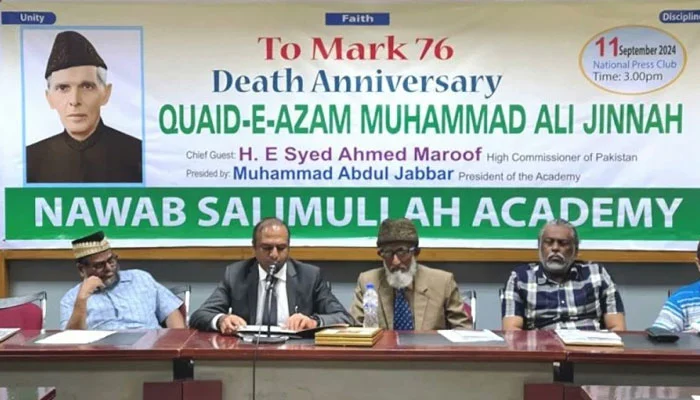In a bold move that underscores the ongoing political tensions in Pakistan, Imran Khan’s party, Tehreek-e-Insaf (PTI), has announced that it will move forward with its planned rally in Islamabad on September 8. This decision comes despite substantial pressure and efforts by the army-backed government to thwart the event.
The rally, intended to mobilise support and demonstrate PTI’s strength, has become a focal point of contention between Khan’s party and the current administration. The government, which enjoys significant backing from the military, has reportedly undertaken various measures to prevent the rally from taking place. These include restrictions on public gatherings, heightened security around the capital, and attempts to limit the movement of PTI supporters.
Despite these obstacles, PTI remains resolute in its plan to proceed with the rally. Party officials argue that the government’s actions are an attempt to suppress democratic freedoms and stifle political opposition. They have called on their supporters to gather in large numbers to showcase their commitment to their cause and to challenge what they describe as an undemocratic stance by the authorities.
Imran Khan, the former Prime Minister and leader of PTI, has been vocal about his discontent with the current political environment in Pakistan. He contends that the government’s efforts to prevent the rally are indicative of a broader trend of authoritarianism. Khan and his party are using this rally as a platform to highlight their grievances and push for political reform.
On the other hand, the government has defended its actions by citing concerns over public safety and potential disruptions. Officials argue that the rally could incite unrest and jeopardise the security situation in the capital. They have assured the public that their measures are intended to maintain order and prevent any possible escalation.
The situation has sparked widespread debate among political analysts and the general public. Supporters of PTI view the rally as a crucial test of the government’s commitment to democratic principles, while critics fear it could exacerbate existing tensions and lead to clashes.
As September 8 approaches, all eyes will be on Islamabad. The outcome of the rally could have significant implications for Pakistan’s political landscape, either reinforcing PTI’s position as a key player in opposition politics or further entrenching the government’s control. The unfolding events are likely to be closely watched both domestically and internationally, given the potential impact on Pakistan’s democratic processes and stability.
In a bold move that underscores the ongoing political tensions in Pakistan, Imran Khan’s party, Tehreek-e-Insaf (PTI), has announced that it will move forward with its planned rally in Islamabad on September 8. This decision comes despite substantial pressure and efforts by the army-backed government to thwart the event.
The rally, intended to mobilise support and demonstrate PTI’s strength, has become a focal point of contention between Khan’s party and the current administration. The government, which enjoys significant backing from the military, has reportedly undertaken various measures to prevent the rally from taking place. These include restrictions on public gatherings, heightened security around the capital, and attempts to limit the movement of PTI supporters.
Despite these obstacles, PTI remains resolute in its plan to proceed with the rally. Party officials argue that the government’s actions are an attempt to suppress democratic freedoms and stifle political opposition. They have called on their supporters to gather in large numbers to showcase their commitment to their cause and to challenge what they describe as an undemocratic stance by the authorities.
Imran Khan, the former Prime Minister and leader of PTI, has been vocal about his discontent with the current political environment in Pakistan. He contends that the government’s efforts to prevent the rally are indicative of a broader trend of authoritarianism. Khan and his party are using this rally as a platform to highlight their grievances and push for political reform.
On the other hand, the government has defended its actions by citing concerns over public safety and potential disruptions. Officials argue that the rally could incite unrest and jeopardise the security situation in the capital. They have assured the public that their measures are intended to maintain order and prevent any possible escalation.
The situation has sparked widespread debate among political analysts and the general public. Supporters of PTI view the rally as a crucial test of the government’s commitment to democratic principles, while critics fear it could exacerbate existing tensions and lead to clashes.
As September 8 approaches, all eyes will be on Islamabad. The outcome of the rally could have significant implications for Pakistan’s political landscape, either reinforcing PTI’s position as a key player in opposition politics or further entrenching the government’s control. The unfolding events are likely to be closely watched both domestically and internationally, given the potential impact on Pakistan’s democratic processes and stability.


